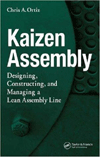
To
acquire a pipe’s geometry using TubeInspect, the pipe is placed in an optical
measuring cell. Photo courtesy AICON 3D Systems. The photo caption goes here.
Photo courtesy Acme Corp.
TI Automotive is a global supplier in the automotive sector. Its products go into approximately 30 million cars every year. A manufacturer of fuel storage and fluid carrying systems for braking and power train applications, the company cultivates worldwide relationships with all important automakers.
TI Automotive’s manufacturing facility in Fuldabrück, Germany, specializes in making prototypes of fuel pipes. Because these prototypes are made of plastic, they cannot be bent with a conventional bending machine but must be processed by thermal forming.
To check the contour of a prototype, quality engineer Daniel Bock measures it immediately after thermal forming, and after the assembly of add-on components like flanges or brackets.
In the past, these measurements were conducted with the help of gauges and other mechanical inspection tools, which depended very much on the operator. Moreover, the reports derived from these measurements did not comply with requirements for verifiability.
TI considered inspecting the pipes with an articulated arm that probed predefined measuring points. However, when observing measurement service providers, Bock saw that the measurements done with an articulated arm were very complex and time-consuming.
A short time later, while attending a trade fair, Bock came across TubeInspect, an optical tube measuring system for formed tubes, pipes and wires by AICON 3D Systems. Although TubeInspect was not originally made for measuring plastic pipes, Bock discussed AI’s needs with AICON, and the supplier was able to upgrade TubeInspect’s software as necessary. The system was implemented in the Fuldabrück plant in June 2008.
To acquire a pipe’s geometry using TubeInspect, the object to be measured is placed in an optical measuring cell. Several high-resolution digital cameras then accurately measure the pipe’s 3D geometry in a few seconds. The results are provided in clear language, allowing for an unambiguous evaluation on site.
Usually, plastic pipes are a challenge for measuring machines because the material is flexible, causing straight lines to fade into curved parts. To obtain precise measurement values for comparing nominal to actual data, the measuring system has to respect the plastic pipe’s elasticity.
TubeInspect’s software lets the user choose an elasticity value that is specific to the material and reflects the flexibility of the pipe. This feature makes TubeInspect’s measuring results highly accurate.
TubeInspect also has produced enormous time savings for TI because it eliminates the fabrication of special gauges and the related waiting time until the gauge is ready for operation. Now, each prototype of a new plastic pipe can immediately be measured, and deviations from the nominal pipe geometry detected very early.
“With TubeInspect we can give our suppliers support for the production of the bending molds at an incredibly early stage,” says Bock. Already the first manufactured pipe is measureable without any difficulty. As a consequence, our suppliers are instantly able to manufacture the bending molds accurately.”
Equally important, TubeInspect’s automatically generated report does not leave any room for a wrong interpretation by the operator. “Our customers want to have a proof of the pipe’s accuracy,” says Bock. “TubeInspect outputs a coordinate table that can be controlled by everyone. This satisfies our customers much more than the old, usual reports. As some of our customers-for example, Volkswagen-also own a TubeInspect system, we even profit from synergy effects.”
For more information on camera-based 3D measurement systems, call 610-544-1006 or visit www.aicon3d.com.






